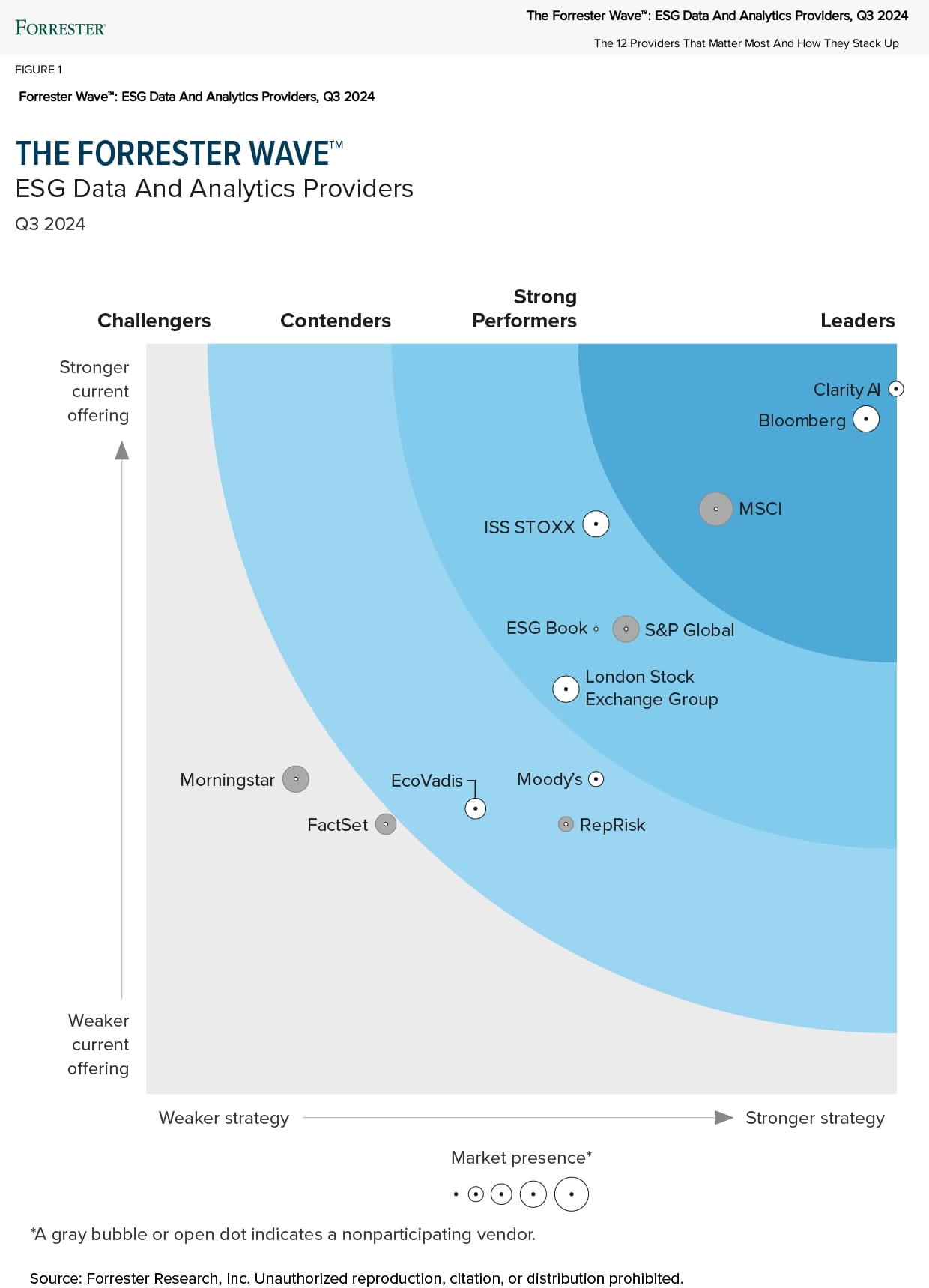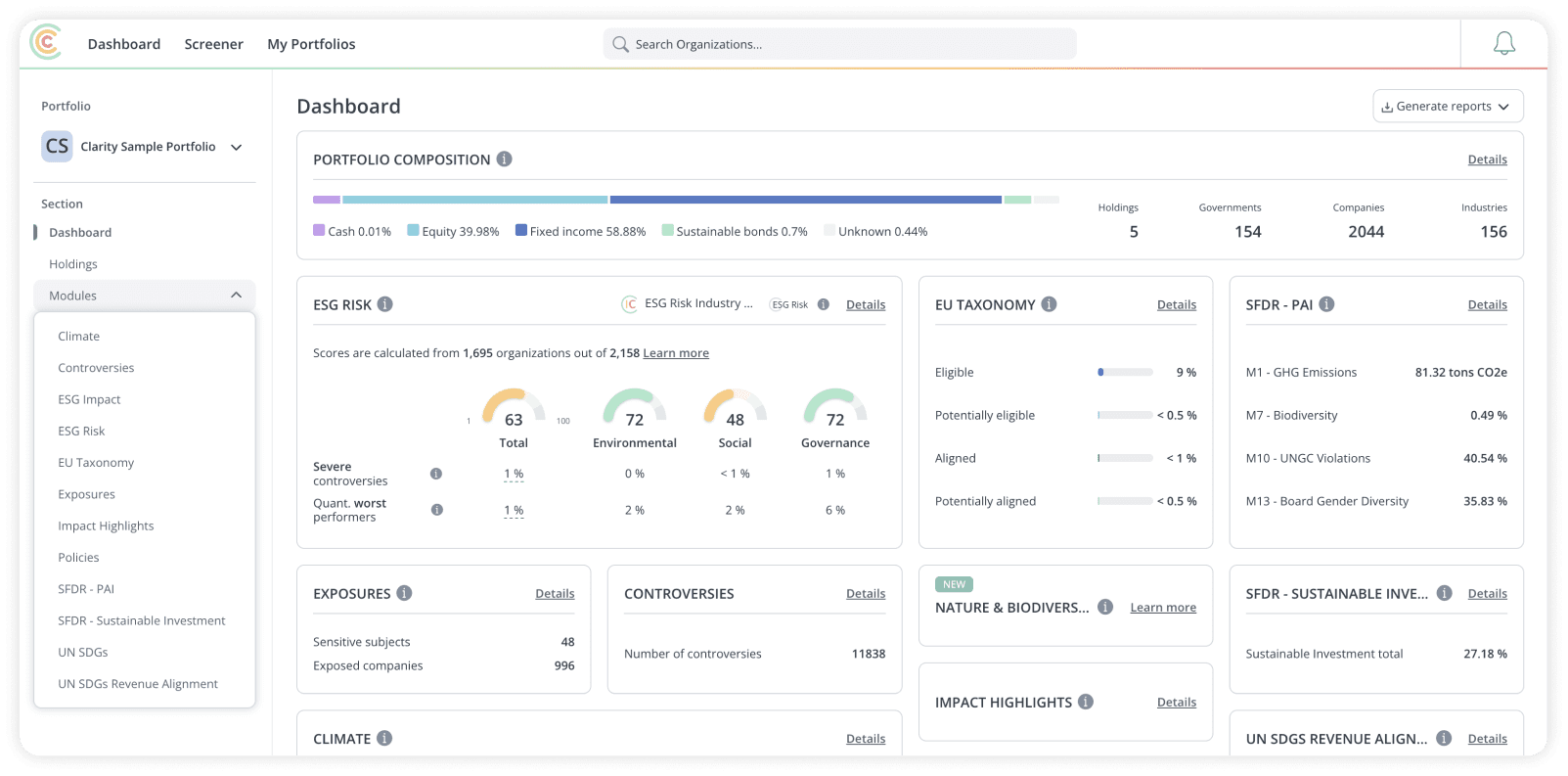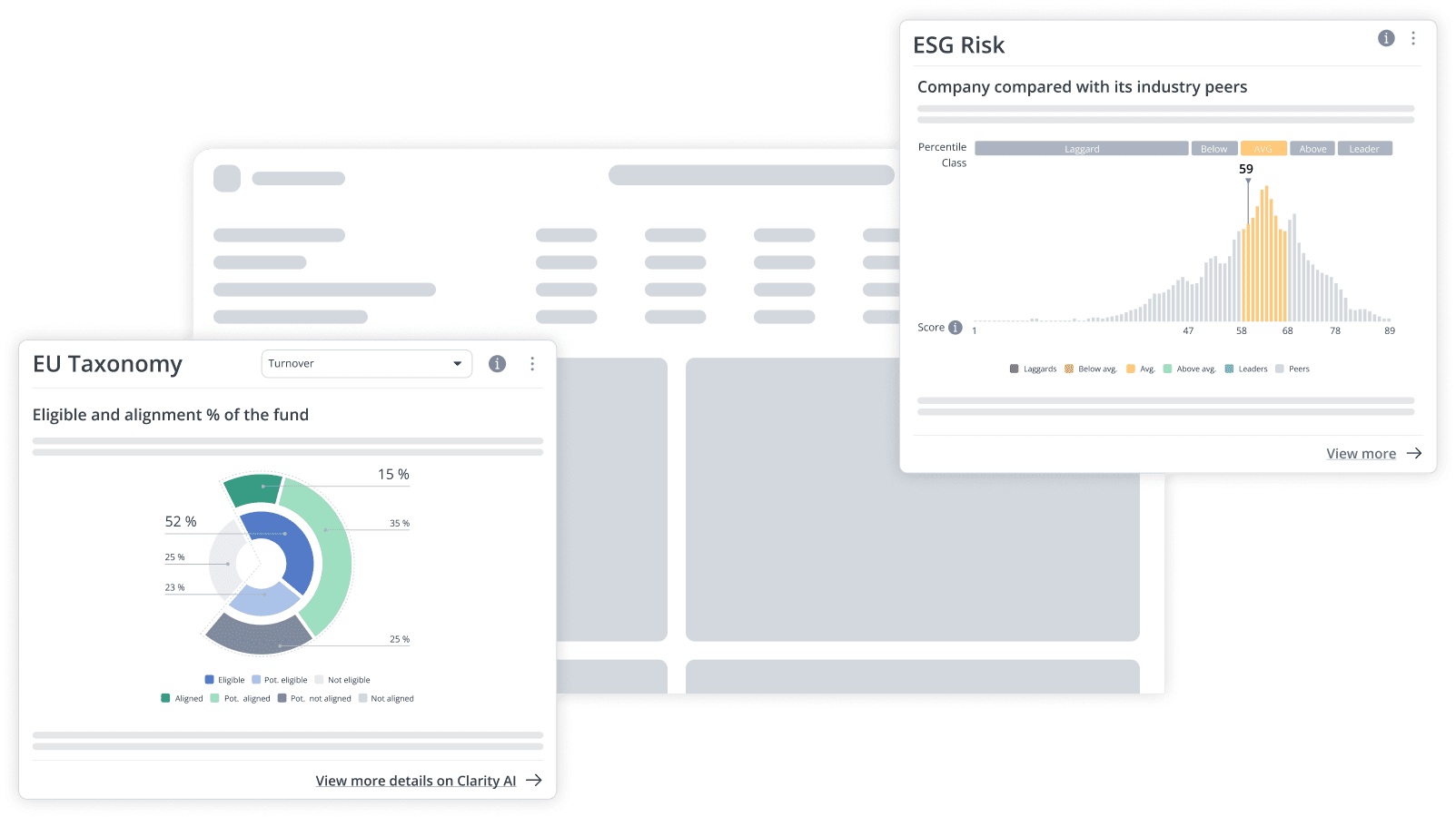EU Taxonomy: Using Tech to Analyze “Green” Fund Performance
Overcoming EU Taxonomy reporting challenges with a data science approach
In today’s sustainable investment markets, a growing cadre of emerging finance taxonomies aim to clarify what it means to be sustainable. As a common classification system for sustainable economic activities, the EU taxonomy is a pioneer in the field and will be instrumental in achieving the emissions reduction and mitigation goals of the European Union’s Green Deal. But complying with the EU taxonomy is not easy.
Specifically, it entails two main implementation challenges for investors:
- A clear mismatch between investor needs and available data. This discrepancy arises both in the timing, when investors need to start reporting before companies, and in the scope of the companies reporting—both EU and nonEU.
- An ongoing regulation development process. Investors need to be ready to adapt as more objectives—both environmental and social—are defined. Clarity AI leverages technology and expertise to provide clients with robust and comprehensive tools to meet their disclosure and product-design requirements.
This report provides insights into the green economy sector, which is vital for the transition toward a climate-neutral economy. If the green economy maintains its current 4.2% growth, it could represent as much as 5.5% of the global market value by 2030. The first section of this paper evidences the merits of a data science approach for EU taxonomy reporting across three specific use cases:
- how granular semantic screening can help identify a company’s green activities at scale
- how models help validate technical screening criteria (TSC) in a scalable, transparent, and reliable way
- how natural language processing can help inform the creation of unbiased definitions of “significant harm”

The second section puts the EU taxonomy to work, diving into the EU taxonomy performance of a subset of 31,000 equity funds using Clarity AI insights. Investors will benefit greatly from a deep understanding of the common traits of the funds best placed for the low-carbon transition, both as they construct new financial products and as they assess performance of current investments.






